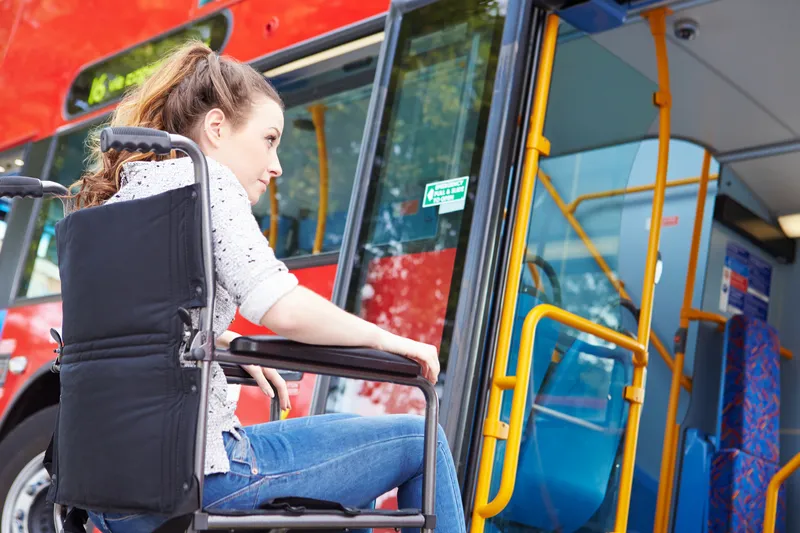
A UK university has received a £20m grant to improve accessibility to transportation services for people with disabilities.
Coventry University will use the money from charity Motability to create the UK’s first evidence centre for accessible and inclusive transport.
Motability's research shows that disabled people in the UK currently make 38% fewer journeys than non-disabled people – a figure that hasn’t changed in the last decade and which therefore impacts disabled people’s access to healthcare, employment, education and social activities.
The university's new centre will undertake research and deliver projects designed to influence policy and transport providers by demonstrating the benefits of accessible transport.
The research and agenda will be led by people who have disabilities and will build upon the user-centred approach developed at the university’s National Transport Design Centre (NTDC) - established in 2017 - where the evidence centre will be based.
It delivers research that guides the design and development of future transport systems.
The new centre will be run by Coventry University and a consortium of charities and organisations, independent of Motability.
NTDC is part of the university’s Clean Growth and Future Mobility research area, which has more than 100 research staff and a research portfolio that explores all aspects of sustainable transport.
Coventry University will lead a consortium of collaborators representing a wide range of organisations including RiDC and Designability, Connected Places Catapult, Policy Connect and WSP UK.
Paul Herriotts, professor of transport design in the Centre for Future Transport and Cities at Coventry University, says: "We need to better understand people who have disabilities lived experiences, needs and wants in relation to transport."
"The funding from Motability enables us to undertake innovative applied research that puts those people impacted with disabilities at the heart of the process. We will look to disabled people to help guide and inform our activities and to help shape the future of public and private transport in the UK."








